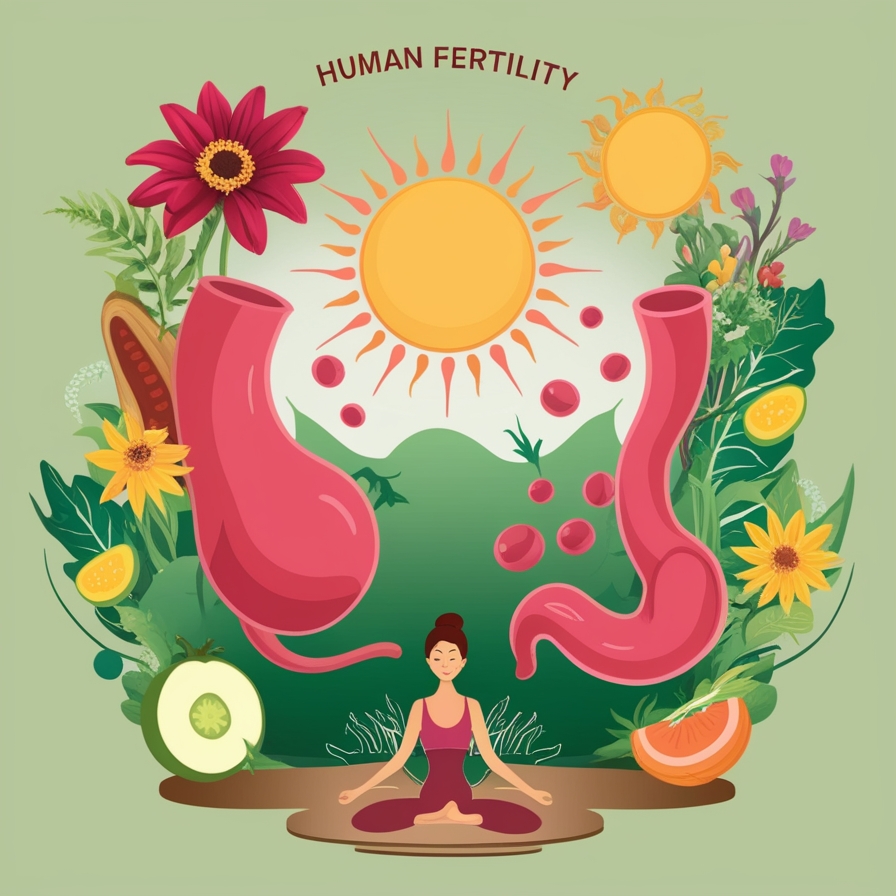Stress is an inevitable part of life, but when it comes to fertility, its effects can be profound, for individuals and couples trying to conceive, stress can create a complex cycle where the emotional toll of trying to get pregnant further exacerbates stress levels, potentially affecting fertility outcomes. understanding the role stress plays in fertility and adopting effective stress management techniques can make a significant difference in your journey to parenthood.
How Stress Affects Fertility
Stress affects fertility in several ways, both directly and indirectly, here are the primary mechanisms.
1. Hormonal Imbalance
When you are stressed, your body releases higher levels of cortisol and adrenaline, these stress hormones can disrupt the delicate balance of reproductive hormones like estrogen, progesterone, and luteinizing hormone (LH), which are essential for ovulation and sperm production.
2. Irregular Menstrual Cycles
In women, chronic stress can interfere with the hypothalamus, the part of the brain that regulates the menstrual cycle, this disruption can lead to irregular or missed periods, making it harder to predict ovulation and conceive.
3. Reduced Libido
Stress often lowers sexual desire, reducing the frequency of intercourse, which can directly impact conception efforts.
4. Impact on Sperm Quality
In men, prolonged stress has been linked to reduced sperm count, poor sperm motility, and increased abnormalities in sperm shape, all of which can decrease the chances of successful fertilization.
5. Lifestyle Choices
Stress often leads to unhealthy coping mechanisms such as poor diet, excessive alcohol consumption, smoking, or lack of exercise, all of which negatively affect fertility.
How to Manage Stress to Support Fertility
Managing stress effectively is a critical part of optimizing fertility, here are some practical strategies:
1. Adopt Relaxation Techniques
-
Meditation: Regular meditation can lower cortisol levels and promote a sense of calm.
-
Deep Breathing: Practicing deep breathing exercises can help reduce immediate stress and create a more relaxed state.
-
Yoga: Combining physical movement with mindfulness, yoga has been shown to reduce stress and improve reproductive health.
2. Maintain a Healthy Lifestyle
-
Balanced Diet: Eat a diet rich in whole foods, lean proteins, healthy fats, and plenty of fruits and vegetables to support overall health.
-
Exercise Regularly: Moderate exercise can improve mood, reduce stress, and boost circulation to reproductive organs.
-
Sleep Well: Aim for 7-8 hours of quality sleep each night to allow your body to repair and regulate hormonal functions.
3. Seek Professional Help
-
Therapy or Counseling: A mental health professional can help you navigate the emotional challenges of trying to conceive.
-
Support Groups: Connecting with others who are on a similar journey can provide emotional support and practical advice.
4. Prioritize Self Care
-
Take time for activities you enjoy, whether it’s reading, spending time in nature, or engaging in a creative hobby.
-
Avoid overcommitting yourself and learn to say no to activities or obligations that add unnecessary stress.
5. Communication is Key
-
Openly discuss your feelings and concerns with your partner. sharing the emotional burden can help both of you feel supported and connected.
-
If applicable, communicate with your healthcare provider about your stress levels and explore fertility treatments that may help ease your concerns.
Conclusion
While stress is a natural response to life’s challenges, its impact on fertility can be significant, by understanding how stress influences reproductive health and taking proactive steps to manage it, you can improve your chances of conceiving and enhance your overall well-being, remember, your journey to parenthood is unique, and prioritizing your mental and emotional health is just as important as addressing physical health concerns.
Share This Insight, If you found this article helpful, share it with friends and loved ones who may benefit. together, we can raise awareness and support each other on the path to better health and fertility.

